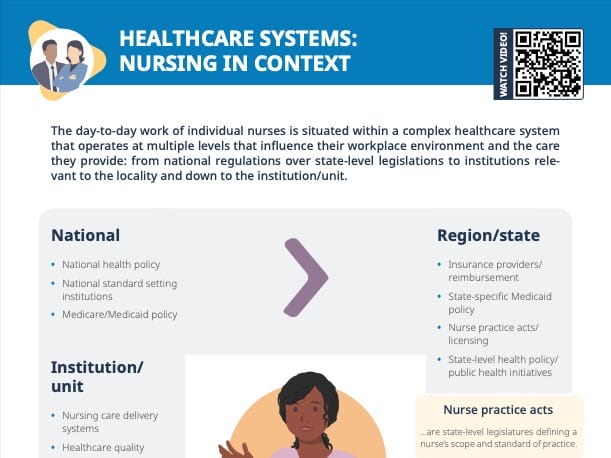What is the nurse practice act?
The U.S. nurse practice act (NPA) is a legislation on state level guiding the scope of practice for all levels of nurses. It represents all laws that regulate a nurse’s scope of practice in the state in which the nurse is licensed, as well as the regulations for the level of a nurse’s educational and licensure requirements.
Typical elements included in a nurse practice act are, among others:
- Clear definitions of all aspects and roles of nursing
- Detailed descriptions of the scope of practice of each role
- Licensure requirements
- Grounds for disciplinary action
- Educational program standards
- Advanced practice regulations
- Establishment of a State Board of Nursing
The frequency of updates varies, but most states review their NPAs regularly. Changes in healthcare, technology, or public need can prompt revisions. It’s a good practice to check your state’s Board of Nursing website regularly or be part of a professional nursing organization to stay updated.
What is the purpose of the nurse practice act?
The primary goal of nurse practice acts is to protect citizens’ rights by ensuring that nurses provide safe and competent nursing care via established standards and codes of ethics.
It’s imperative for new nurses to familiarize themselves with their state’s NPA and regularly review it throughout their careers.
List of state nurse practice acts
If your state is not listed here, the NCSBN provides a useful tool to find your state’s NPA here.
